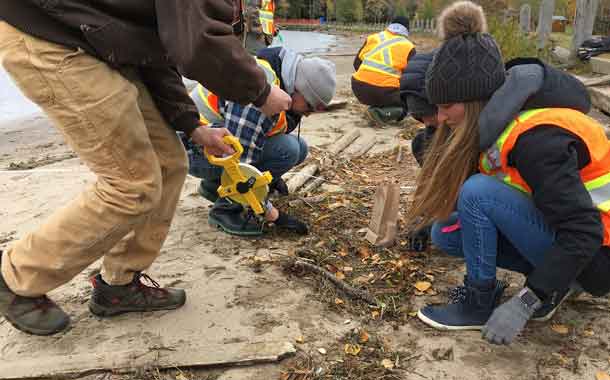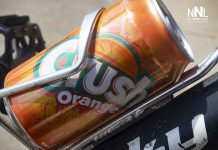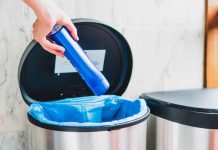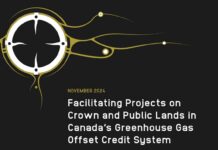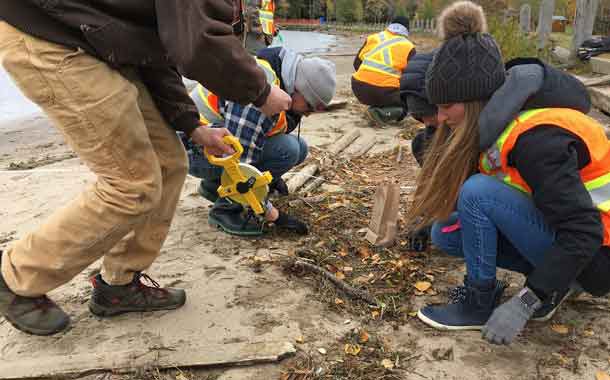
According to recent research, there are five trillion plastic pieces weighing over 226,000 tonnes in the world’s oceans. The Great Lakes also have plastic waste and research such as this sand survey help determine the scope of the issue in northwestern Ontario.
“I can’t believe how much plastic we found,” said Kolten Hickman, Environmental Technician student. “You don’t think it’s happening in your hometown until you see it on your own beach.” Hickman believes this research is important, not only as part of his college education but as a way to learn more about plastic pollution. “It gives us a better understanding of the issues and gives physical evidence that might open people’s eyes.”
The beach was separated into forty-four sections and students methodically collected all of the surface plastics from the 220-metre beach. Sand samples were taken to determine the amount of microplastics present. Data gathered and analyzed by the students will contribute to the growing databases tracking plastic pollution in the Great Lakes Basin. During the clean-up, the location and type of plastic debris was documented and total quantity and weights will be recorded through the Great Canadian Shoreline Cleanup program.
Sandra Stiles, Environmental Technician program coordinator, knows that the students were very engaged in this project. “Students are learning the techniques involved in sampling and analyzing microplastics, while also learning about the importance of social responsibility and the value of partnering on projects with community,” said Stiles.
Shannon Costigan, Project Supervisor/Program Coordinator for EcoSuperior, led the experience for students. “The Lake Superior Shoreline Clean-up and Microplastics Project is designed to connect the students and residents of Thunder Bay to their Lake Superior shorelines,” said Costigan. “We encourage people to consider plastic pollution and how their personal actions contribute to a highly visible global issue.” Costigan is also a part-time professor with the Environmental Technician program at Confederation College so directly sees the impact an experience like this affords students.
For example, Jessica Tratnik, another Environmental Technician student, has taken the teachings to heart and intends on changing her habits. “I’m very interested to learn how much microplastic we’ll find once we get back to the lab and examine the sand,” she said. “This project has made me want to live a waste-free life.”
Microplastics enter the ecosystem in a variety of ways:
- Larger plastic garbage breaks down into smaller and smaller pieces when exposed to sunlight, wave and wind action.
- Some consumer products such as exfoliating body scrubs and toothpaste contain tiny plastic microbeads that go down the drain and not all are captured at wastewater treatment plants.
- Clothing made from synthetic materials like fleece and nylon release plastic fibres when washed.
To learn more about microplastics and the Lake Superior Shoreline Clean-up and Microplastics Project, visit www.ecosuperior.org. Funding was received through a grant from the TD Friends of the Environment Fund with contributions from the City of Thunder Bay.
For more information and to apply to the Environmental Technician program, visit www.confederationcollege.ca/environmental.

